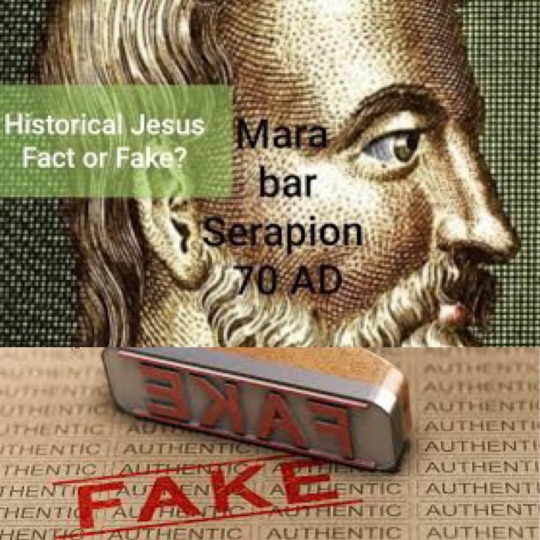#christian apologetics
Text

Keep your vision clear. 👓
“The instrument through which you see God is your whole self. And if a man's self is not kept clean and bright, his glimpse of God will be blurred”
— C.S. Lewis (29 November 1898 – 22 November 1963), 'Mere Christianity (1952)'
#C.S. Lewis#Mere Christianity#quote#wisdom#vision#God#Christian apologetics#Christian doctrine#religious literature#religion#faith#Christianity#Mere Christianity (1952)
10 notes
·
View notes
Text

"To no one's surprise, modern Christian apologists, armed with stacks of diplomas from Bible colleges, have ginned up books and blogs by the hundreds to validate the conflicting, nonsensical New Testament stories.
The very fact that Bible stories require a small army of trained apologists to Jesusplain the contradictions is prima facie evidence the stories are fabrications."
-- Robert Conner
#Robert Conner#christianity#bible#bible study#christian apologetics#religious apologetics#new testament#bible forgeries#forgery#pseudepigrapha#religion#religion is a mental illness
86 notes
·
View notes
Text
Theological Implications of Jesus' Resurrection for Salvation
Jesus’ resurrection is an essential element in soteriology. In fact, every writer of the NT assumes that Jesus was resurrected from the grave and treat it as an event that took place in time and space. Paul wrote that Jesus “was raised on the third day according to the Scriptures” (1 Cor 15:4), that He was “the first fruits of those who are asleep” (1 Cor 15:20), and that “having been raised from…

View On WordPress
#Apologetics of Faith#atonement#Biblical Apologetics#Biblical Exegesis#Biblical interpretation#Biblical theology#Biblical Witnesses#Christian apologetics#Christian beliefs#Christian doctrine#Christian faith#Christian Hope#Christian living#Christian salvation#Christian theology#crucifixion#Divine Atonement#Early Christian Beliefs#Easter#Easter Theology#faith#gospel message#Historical Jesus#how important is the resurrection of Jesus#importance of Jesus resurrection#is resurrection important#is the resurrection essential to the gospel#Jesus Christ#Jesus resurrection#justification
11 notes
·
View notes
Text
Sh!t Christians Say
"You'd have to believe to a certain extent that God exists in order to argue his nonexistence." -- @n9neframes

=-=-=-=
Let's use that same argument with something else and see if it holds up:
You'd have to believe to a certain extent that the Ogopogo exists in order to argue his nonexistence.
You'd have to believe to a certain extent that dragons exist in order to argue their nonexistence.
You'd have to believe to a certain extent that Voldemort exists in order to argue his nonexistence.
You'd have to believe to a certain extent that something exists in order to argue its nonexistence.
Does that argument hold up?
#christianity#religion#christian apologetics#god of abraham#god of israel#atheism#lol#epic fail#christian logic#sh!t christians say
6 notes
·
View notes
Text
youtube
"So, his advice for showing love to an LGBT person is disagreeing with their 'behavior', meaning sexual orientation or gender expression, and befriending them in order to help them not do that anymore."
#lgbt#lgbtq community#lgbtq#gay#trans#video essay#child abuse#domestic abuse#gender nonconforming#youtube#christianity#debunking#informative#information#christian love#christian apologetics#Youtube
4 notes
·
View notes
Text

Africanus quoted a section of Phlegon’s work as follows: “During the time of Tiberius Cæsar an eclipse of the sun occurred during the Full Moon.”
2 notes
·
View notes
Text
It's so funny to me that Christian apologists consistently try to degrade atheism or scientific facts like evolution, by using words like "faith" and "religion".
I thought faith and religion were supposed to be good things in your world view?
25 notes
·
View notes
Text

#theology memes#catholic memes#Meister Eckhart#mysticism#theology#philosophy#apologetics#Christian apologetics
48 notes
·
View notes
Text

#God#Jesus#inspirational#text#quotes#motivational quotes#our daily bread#typography#bibledaily#christian#bible devotions#devotional#bible story#biblical#photography#bible verse#bible study#christian apologetics
34 notes
·
View notes
Text
For any Christians wanting to share their faith: make it a conversation, not a presentation
Most people don't want you to throw out a sideshow of scientific/archeological/historical/other claims that Christianity is true (and if they do, make sure you do enough research to know that you're answering correctly!) But if someone invites you to talk about your faith, just tell them your story. Christianity for most of us is emotional. It's a personal relationship with God, and it gives us hope, reconciliation, love, comfort, purpose, and guidance. That's why it matters.
If your goal is to argue with people and try to tear down their beliefs, you're missing the point. If someone says "hey, I'd like to know more about this" then tell them why YOU believe in God, why it matters to you, and how it changes your life. Non-Christians aren't your enemy, and your goal as a Christian isn't "convert everyone you see", but to be a living example of God's work. Respect those who don't believe, are on the fence, or never will believe the same things as you, and love them as you're called to love all your neighbors. You shouldn't under ANY circumstances shame and try to make someone believe they're wrong at their core for not believing in God.
Approaching anything (let alone a topic that should be inviting) with arrogance, smugness, and belligerence is counterintuitive. You'll hurt people this way, and you should check your heart before the conversation becomes an argument. Also, if you truly believe what you believe, then you shouldn't need to be overly upset and defensive. At the end of the day, you're still just as Christian as before.
God has proven to be the missing piece in my life so many times, and every time I find myself drifting, I go back and see Him piece it back together. That doesn't mean I'm great and happy all the time, but I have someone to depend on, and someone who not only listens, but answers my prayers. God isn't something I chase for comfort, He's someone I'm grounded in, who is FOR me, and who carries my burdens with me. I can always go back to the calm in the storm, and that is the main reason that sharing my experience gives me joy.
It's not about "besting", converting, or proving people wrong. It's about being a loving example of the loving thing you represent. If that's where you fall short, then start with yourself.
So again, if someone invites you to talk about your faith, just tell them your story :)
3 notes
·
View notes
Text

The Three Laws of Creationist Apologetics
The First Law
Faith in Creation can never be destroyed. In a closed mind, the level of ignorance must always remain equal.
The Second Law
Creationists will always conflate separate scientific fields of study. As a result, all conversations tend towards entropy.
The Third Law
In any conversation, the replies that are simply links to "scientiif" creationist articles, tends towards constant, as the understanding of those articles approaches absolute zero.
#creationism#creationist nonsense#apologetics#religious apologetics#christian apologetics#science illiteracy#religion#religion is a mental illness
15 notes
·
View notes
Text

Is Mara bar Serapion’s Letter a Forgery?
Eli Kittim
The letter has been claimed to include no
Christian themes.
— Wiki
Mara bar Serapion was a stoic philosopher. He is noted for a lengthy letter that he wrote to his son. The letter was composed in Syriac, written sometime between 73 AD and the 3rd century. Many Christian apologists have suggested that Mara bar Serapion is alluding to Jesus Christ in this letter. But there are several problems with that theory.
First, a nonChristian like Mara bar Serapion would never have referred to Jesus as a “king.” Only dedicated and reborn Christians refer to Jesus as their Lord of lords and kings of Kings, not pagans.
Second, Jesus was not known as a “king.” In fact, according to Bruce Chilton and Craig A. Evans (“Studying the Historical Jesus,” pp. 455–457), “the term ‘king of the Jews’ has never been seen in the Christian literature of antiquity as a title for Jesus.”
Third, Jesus was not known as a “wise king.” The only Jew known to be a “wise king” was King Solomon, who was in fact a *king,* and whose *wisdom* was known throughout the ancient world. What is more, King Solomon is well known for being the author of many books of *wisdom* in the Bible.
Fourth, Mara bar Serapion does not even mention the terms “Jesus” or “Christ.” And when referring to famous heroic philosophers who died, and what happened after their death, he never mentions Jesus’ resurrection. Even if he didn’t believe it, he would have, at least, mentioned the *rumor* of Jesus being raised from the dead. The fact that he doesn’t mention it at all means that he’s not talking about Jesus:
[Robert E.] Van Voorst adds two factors
that indicate Mara was not a Christian, the
first being his failure to mention the terms
Jesus or Christ. The second factor (also
supported by Chilton and Evans) is that
Mara's statement that Jesus lives on based
on the wisdom of his teachings, in contrast
to the Christian concept that Jesus
continues to live through his resurrection,
indicates that he was not a Christian.
— Wiki
Fifth, the language of the document suggests that Mara bar Serapion is referring to an actual king who enacted new laws and established new practices. For example, Jewish tradition ascribes ritual hand washing and eruvin to King Solomon, who also served as a Judge (e.g. the “Judgment of Solomon”). He was also responsible for building the first temple, and for instituting new laws of how the temple services would run:
Nay, Socrates did ‘not’ die, because of
Plato; nor yet Pythagoras, because of the
statue of Hera; nor yet the Wise King,
because of the new laws which he enacted.
— Wiki
Sixth, there’s something very odd about the reference to the Jews in this letter. This is quite a long letter, which is based entirely on Greek philosophy. Scholars are in agreement that Mara bar Serapion was a Stoic philosopher and a pagan. As a rule, Stoic philosophers held Jewish teachings in contempt, and so they would never have placed them on a par with the teachings of Socrates, Plato, and Pythagoras. We know this from the apostle Paul who was scoffed at when preaching to stoic philosophers in Athens (Acts 17:15-34). The addition of the “Jewish” element, therefore, reads like a non sequitur, like a strange interpolation that doesn’t belong there… It sounds as if someone added it at a later time. And it seems as if the author (or editor?) got things wrong. Pythagoras was not burned, and King Solomon was not killed. And the expulsion of the Jews might be a reference to the deportation of the Northern Kingdom in 722 BC, or to that of Judah in 586 BC:
The letter refers to the unjust treatment of
‘three wise men’: the murder of Socrates,
the burning of Pythagoras, and the
execution of ‘the wise king’ of the Jews.
— Wiki
Now that I have offered my critique, let’s actually read that portion of the letter that apologists have employed time after time as evidence for the historicity of Jesus. Do you think that this pericope constitutes strong evidence for the existence of Jesus? Hardly! Not by a long shot:
For what benefit did the Athenians obtain
by putting Socrates to death, seeing that
they received as retribution for it famine and
pestilence? Or the people of Samos by the
burning of Pythagoras, seeing that in one
hour the whole of their country was covered
with sand? Or the Jews by the murder of
their Wise King, seeing that from that very
time their kingdom was driven away from
them? For with justice did God grant a
recompense to the wisdom of all three of
them. For the Athenians died by famine;
and the people of Samos were covered by
the sea without remedy; and the Jews,
brought to desolation and expelled from
their kingdom, are driven away into every
land. Nay, Socrates did “not” die, because
of Plato; nor yet Pythagoras, because of the
statue of Hera; nor yet the Wise King,
because of the new laws which he enacted.
— Wiki
#MarabarSerapion#christian apologetics#stoicism#Acts17#greek philosophy#Jesus#the little book of revelation#Syriaclanguage#Samosata#letter#earlyChristianwritings#τομικροβιβλιοτηςαποκαλυψης#ek#pythagoras#Plato#Hera#RobertEVanVoorst#elikittim#Christ#CraigAEvans#eruvin#BruceChilton#aramaic#temple#ελικιτίμ#socrates#Samsat#Solomon#diaspora#historicaljesusstudies
4 notes
·
View notes
Text

#abrahamic religions#christianity#religion#apologetics#christian apologetics#just for us#lol#youtube comments
2 notes
·
View notes
Text
The God of the Old Testament is the same God of the New Testament, there is no change in how God conducts himself from the Old to the New Testament. He does not change and can’t conflict with His own character.
#I get tired of people saying that the God of the old testament is not the same of the new testament#thats not how it works people#He is the same God#christianity#bible#Jesus Christ#lgbtq#christian apologetics#People need to know this because I know there are some of yall that think otherwise
9 notes
·
View notes
Text

The Case for Christ
by Lee Strobel
10 Favorite Lines:
…I was pleasantly surprised—even fascinated—by the fundamental changes in her character, her integrity, and her personal confidence. Eventually I wanted to get to the bottom of what was prompting these subtle but significant shifts in my wife’s attitudes, so I launched an all-out investigation into the facts surrounding the case for Christianity.
…we can’t have absolute proof about virtually anything in life.
“…the most important creed in terms of the historical Jesus is 1 Corinthians 15… If the crucifixion was as early as AD 30, Paul’s conversion was about 32. Immediately Paul was ushered into Damascus, where he met with a Christian named Ananias and some other disciples. His first meeting with the apostles in Jerusalem would have been about AD 35. At some point along there, Paul was given this creed, which had already been formulated and was being used in the early church. Now, here you have the key facts about Jesus’ death for our sins, plus a detailed list of those to whom he appeared in resurrected form—all dating back to within two to five years of the events themselves!”
“…something else that favors the New Testament. We have copies commencing within a couple of generations from the rising of the originals, whereas in the case of other ancient tests, maybe five, eight, or ten centuries elapsed between the original and the earliest surviving copy.”
“…the canon is a list of authoritative books more than it is an authoritative list of books. These documents didn’t derive their authority from being selected; each one was authoritative before anyone gathered them together.”
“Let’s pretend we didn’t have any of the New Testament or other Christian writings… Even without them, what would we be able to conclude about Jesus from the ancient non-Christian sources, such as Josephus, the Talmud, Tacitus, Pliny the Younger, and others?” …“We would know that first, Jesus was a Jewish teacher; second, many people believed that he performed healings and exorcisms; third, some people believed he was the Messiah; fourth, he was rejected by the Jewish leaders; fifth, he was crucified under Pontius Pilate in the reign of Tiberius; sixth, despite this shameful death, his followers, who believed that he was still alive, spread beyond Palestine so that there were multitudes of them in Rome by AD 64; and seventh, all kinds of people from the cities and countryside—men and women, slave and free—worshipped him as God.”
“[Hell is] filled with people who, for all eternity, still want to be at the center of the universe and who persist in their God-defying rebellion. …if God took his hands off this fallen world so that there are no restraints on human wickedness, we would make hell. Thus, if you allow a whole lot of sinners to live somewhere in a confined place where they’re not doing damage to anyone but themselves, what do you get but hell? There’s a sense in which they’re doing it to themselves, and it’s what they want because they still don’t repent.”
Isaiah revealed the manner of the Messiah’s birth (of a virgin); Micah pinpointed the place of his birth (Bethlehem); Genesis and Jeremiah specified his ancestry (a descendent of Abraham, Isaac, and Jacob, from the tribe of Judah, the house of David); the Psalms foretold his betrayal, his accusation by false witnesses, his manner of death (pierced in the hands and feet, although crucifixion hadn’t been invented yet)…
…the willingness of the disciples to suffer and even die for what they experienced; the revolutionized lives of skeptics like James and Saul; the radical changes in social structures cherished by Jews for centuries; the sudden appearance of Communion and baptism; and the amazing emergence and growth of the church. …the resurrection, and only the resurrection, make sense of them all.
Every other faith system I studied during my investigation was based on the “do” plan. In other words, it was necessary for people to do something… to try to somehow earn their way back to God… Christianity is unique. It’s based on the “done” plan—Jesus has done for us on the cross what we cannot do for ourselves…
#Books#reading#quotes#book quotes#lee strobel#the case for christ#christianity#Jesus#the Bible#apologetics#christian apologetics
3 notes
·
View notes
Text
The False Doctrines of Bill Johnson - Revisited
The False Doctrines of Bill Johnson – Revisited
Bill Johnson is a fifth-generation pastor and has held the position of Senior Pastor at Bethel Church in Redding, California, since 1996. He is known for leading a church and Christian movement that is focused on pursuing the Holy Spirit gifts and manifestations in everyday life, based on the simple premise that God is good. His father, M. Earl Johnson, previously held the Senior Pastor position…

View On WordPress
2 notes
·
View notes